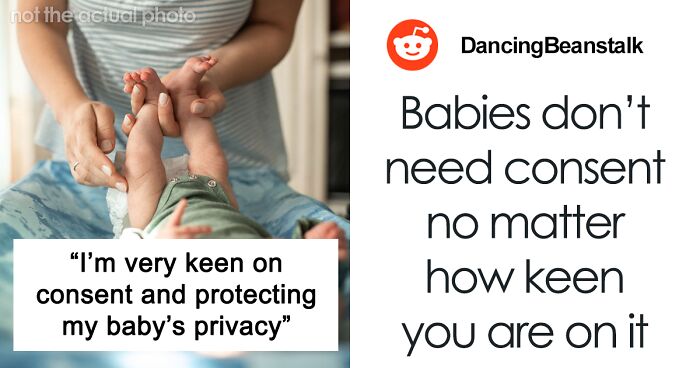
“I’m Very Keen On Consent And Protecting My Baby’s Privacy”: Mom Is Mad At MIL After She Changed Her Baby’s Diaper
Everyone tends to think that their approach to parenting is the best one and that they and they alone know what’s best for their children. And, in part, that’s very true. But asking for help or a spot of advice isn’t something that should be judged. Quite the opposite—it’s the mature thing to do. Luckily, there are plenty of places on the internet where parents can do just that. And anonymously, too, so there’s no ‘shame’ in asking for someone’s input.
One mom took to the popular Mumsnet forum to ask the community for their thoughts on whether she was being unreasonable to limit who can and cannot change her baby’s diapers. All in the name of consent, something that she values very much and that many parents would agree is an important issue. Scroll down for the mom’s post, as well as how everyone reacted to it.
Bored Panda wanted to learn more about teaching kids the importance of consent, so we reached out to Jayneen Sanders, a children’s safety and education advocate, elementary school teacher, mother of three, and the author of over 100 stories for children. Her goal is to help keep children safe by teaching them age-appropriate and empowering prevention education. Jayneen, from Australia, explained to us when formal lessons about consent can begin, how parents can establish healthy boundaries with their relatives when it comes to their kids, and kindly walked us through what lessons ought to be taught at what age. Read on for her insights.
Consent is an important topic. However, they can create rifts in families if some members don’t communicate about it
Image credits: Yan Krukau (not the actual photo)
One parent believes that her baby’s grandparents shouldn’t be allowed to change its diapers
Image credits: RODNAE Productions (not the actual photo)
Image credits: Mum070322
Image credits: Karolina Grabowska (not the actual photo)
Parents can start having conversations about consent with their children from an early age
According to children’s safety advocate Jayneen, from Educate2Empower Publishing, it is never too early to begin having conversations about consent with your children.
“If consent and respect are modeled to children from an early age, it is what they naturally come to expect. However, formal lessons in consent can begin from around the age of 2 years,” the children’s book writer explained to Bored Panda.
“If a family member values and understands the importance of consent and practices it themselves, then they will know how to change the child’s diaper respectfully. If they do not appreciate the importance of consent, then maybe the parent or carer can provide a simple explanation as to why consent and respect are so important to their family,” Jayneen offered some advice.
“A child’s voice is important. Just like adults, they too have a body boundary and it is their right for it to be respected. Of course, if the child is non-verbal, we cannot ask for consent but we can explain what we are doing and why,” she told us.
“For example, ‘I just need to move your arms so I can put you into your seatbelt. My job is to keep you safe so that is why I need to move your arms into the straps.’ For non-verbal children, it is as simple as explaining what you are doing as you interact with them. As children begin to speak, offer them more choice. For example, ‘Would you like to lift your arms up or shall I do that for you? We need to put on your seatbelt to keep you safe.’”
Image credits: RODNAE Productions (not the actual photo)
As the kids grow, they can start learning more about body safety
The children’s safety advocate also shared some useful guidelines for what lessons about consent and body safety parents can teach their children at what age. She noted that all children are different, so the guide is only approximate. What’s more, these important conversations are ongoing and can happen over many years.
Writer Jayneen suggests using the correct terms for your child’s private parts from the moment they’re born. It’s important to tell your child what you’re doing to their body and why, notice how their body language changes, and ensure that health professionals also talk to your child about what they’re doing.
From the age of 2 to 3, parents can introduce the term ‘body boundary,’ and explain that everyone needs to ask for consent before entering this ‘invisible space.’ Jayneen explained that, at this point, you can teach your kids that they are free to say ‘no’ to any hugs or kisses, as well as any ‘tickling games.’ You should also consider informing older children and adults that if your child says ‘no’ or ‘stop,’ that they should comply. Meanwhile, parents can let their children make more choices and have more agency in their daily lives if it’s safe to do so.
From the age of 3 onwards, parents can continue to reinforce the concepts of consent and body boundaries. Meanwhile, they formally teach their children about feeling safe and unsafe, creating a safety network, the difference between secrets and surprises, the difference between safe and unsafe touch, how private parts are private, and what to do if they’re touched inappropriately.
Image credits: Arina Krasnikova (not the actual photo)
All family members must be on the same page when it comes to consent
To be very clear, consent is an essential topic to cover, and something that kids should learn about from an early age. However, the question isn’t just about that and when those lessons should start. It’s also about what to do when you have an urgent problem on your hands that a relative decides to take care of themselves—like changing a smelly diaper.
In short, the mom who posted on Mumsnet wants only herself and her partner to be the ones to change her child’s diapers. The OP notes that she is not entirely happy with the baby’s grandparents changing the nappies. Though she does mention that she’d be fine with others doing this under some circumstances, say at a nursery or while they’re babysitting the child.
The mom wrote that she’s been finding her mother-in-law increasingly “more overbearing” and is “getting close to drawing a line.” In other words, she wants the grandparents to get the parents’ approval before they take the initiative and change their grandchild’s diapers. However, not everyone on the internet could quite understand where she was coming from.
Two main issues clash here. On one side of the fence, you have a mom who has a clear understanding of her own values and wants to raise her child to understand the importance of consent, privacy, and body autonomy. On the other side of the fence, you have the simple question of practicality: the way the OP envisions things doesn’t necessarily mesh well with how things sometimes work in reality.
Image credits: August de Richelieu (not the actual photo)
Some readers considered that the main issue might not have been consent but the mother-in-law
For instance, it feels a bit peculiar that she has a problem with her mother-in-law taking care of the baby while also mentioning that a babysitter doing the same might not be all that bad. With everything that parents have to do (taking care of their children juggling work, doing the chores, etc.), many adults would be happy that someone close to them is offering to lend a hand.
The people who thought they were lending a helping hand might feel confused if they’re berated for trying to be kind, especially if you hadn’t explained to them the importance of consent to them. Of course, if you already had this conversation with them (once, twice, or even more), it’s a different story entirely if they keep ignoring your boundaries.
Some Mumsnet users wondered whether the OP might in fact simply have an issue specifically with her mother-in-law. Most readers thought that she was being a bit unreasonable towards the baby’s grandparents. A baby cannot understand simple or difficult concepts. However, as the kid develops, consent becomes an important concept for them to internalize.
To put it simply, there is no ‘perfect’ age when to start teaching them about this. Even though your baby doesn’t understand informed consent at all, as it can’t even speak or reason about deep philosophical concepts yet, you could start by talking to them about what you’re doing with their body as you change their diapers or wash their body. You’re subconsciously setting the foundation for future lessons.
Teaching kids about consent is essential because it educates them about how to protect their privacy, boundaries, and autonomy in the future, and teaches them how to be respectful of other people. It helps them push back against unwanted physical contact while also helping them consider what behaviors others might find unwanted. In other words, the child learns that they have the freedom to say ‘no’ to unwanted physical contact, and understands the boundaries of (in)appropriate behavior, whether in a family context or when interacting with strangers.
Many internet users criticized the mom for her approach and couldn’t quite understand her logic
Say it with me folks: Babies cannot consent! They can be comfortable or uncomfortable with things, but those little brains cannot make decisions for themselves. That's what caregivers are for. Start worrying about consent when your kid understands the difference between yes and no.
Say it with me folks: Babies cannot consent! They can be comfortable or uncomfortable with things, but those little brains cannot make decisions for themselves. That's what caregivers are for. Start worrying about consent when your kid understands the difference between yes and no.

 Dark Mode
Dark Mode 

 No fees, cancel anytime
No fees, cancel anytime 







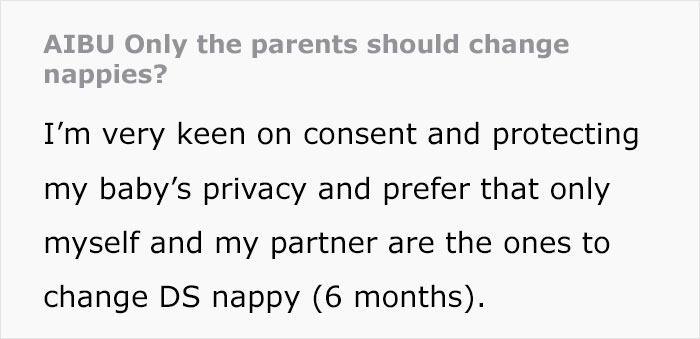
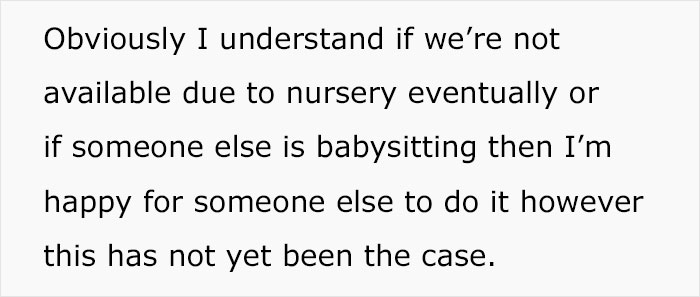

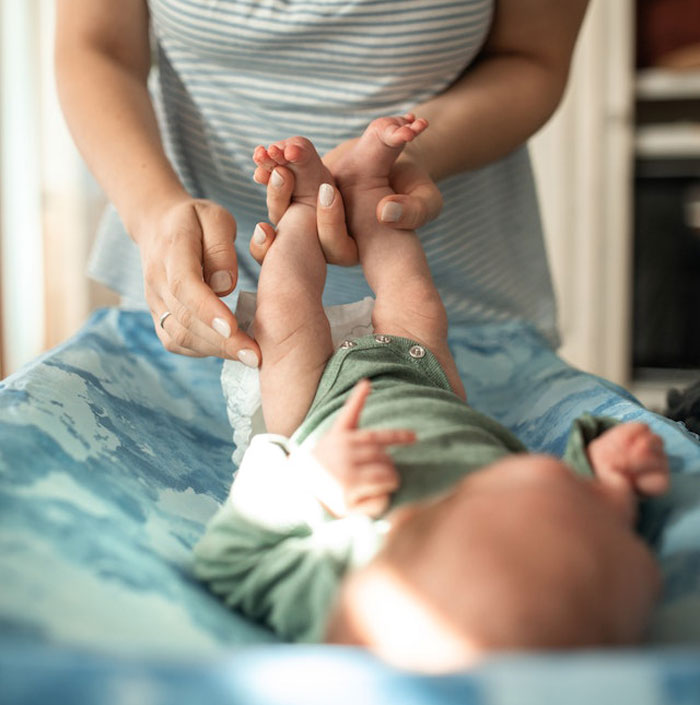

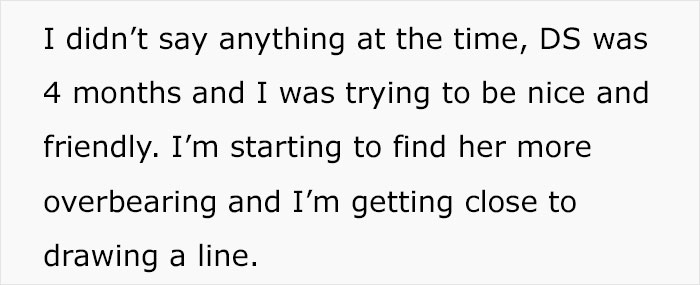




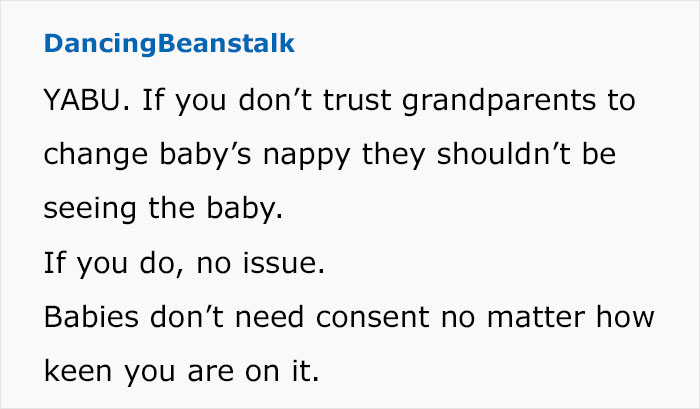
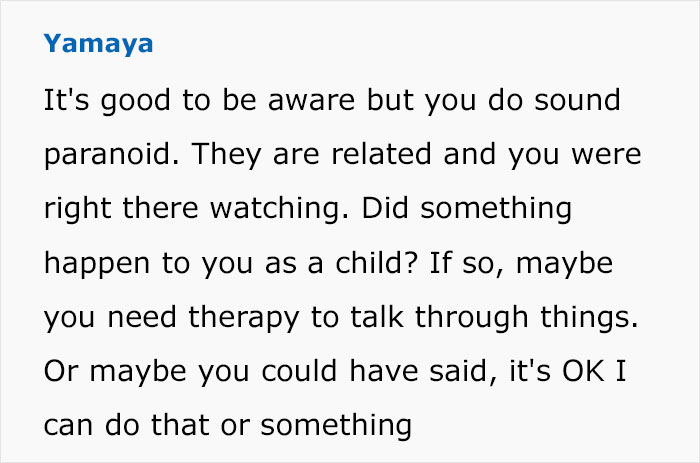
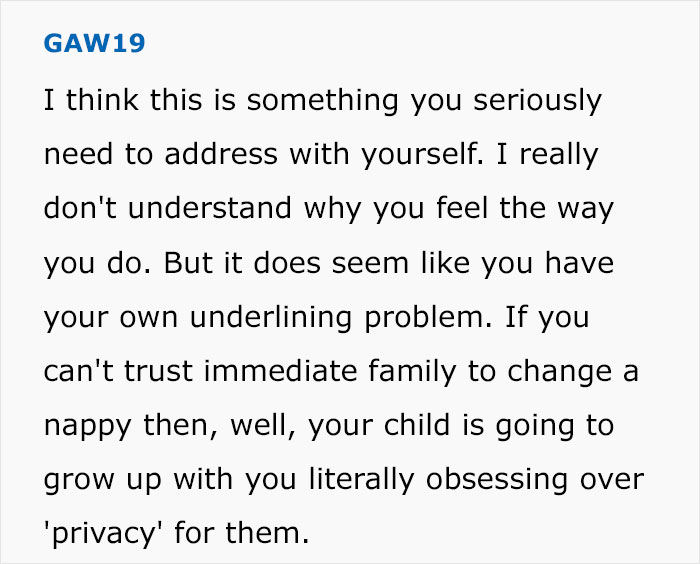
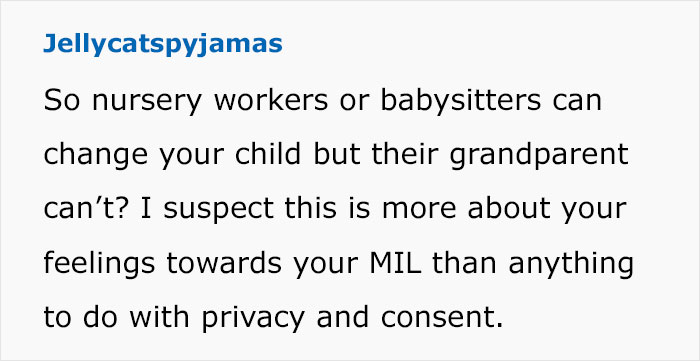

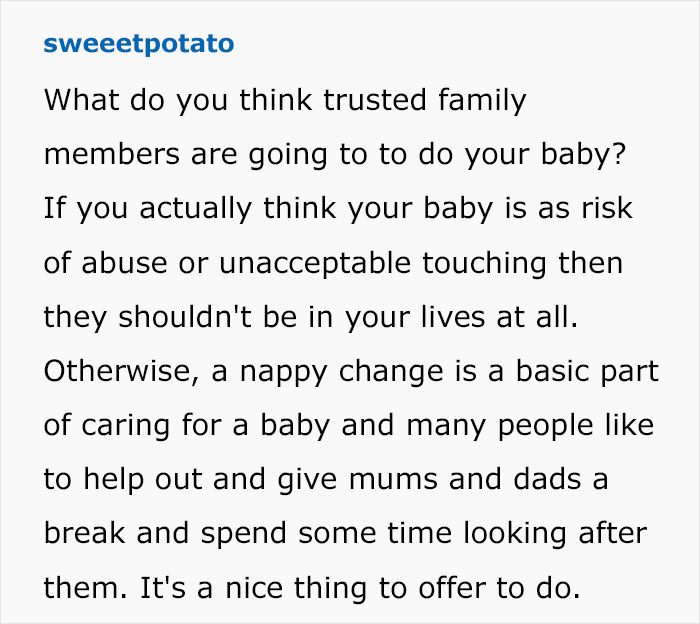
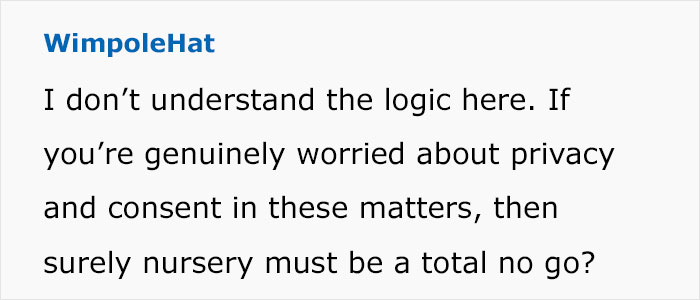




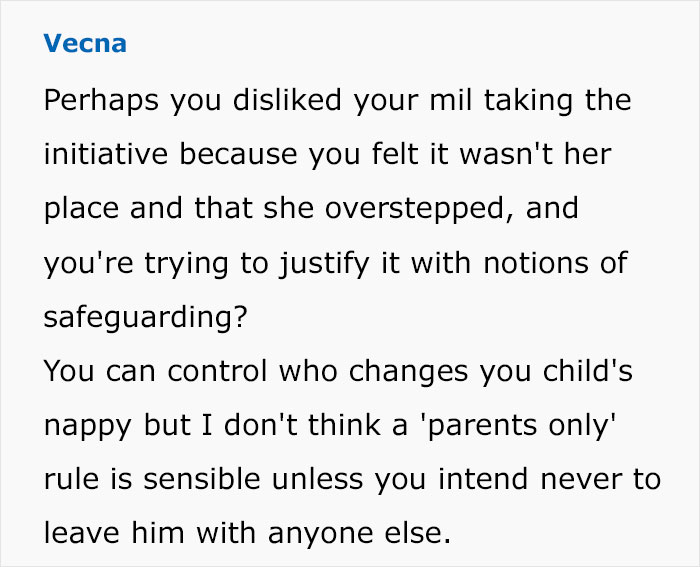
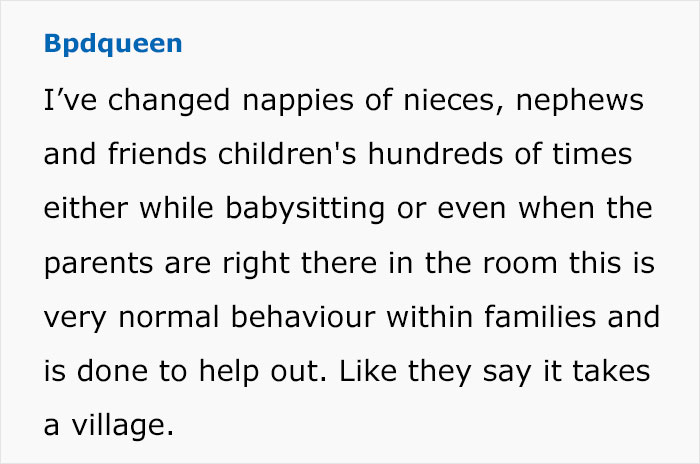




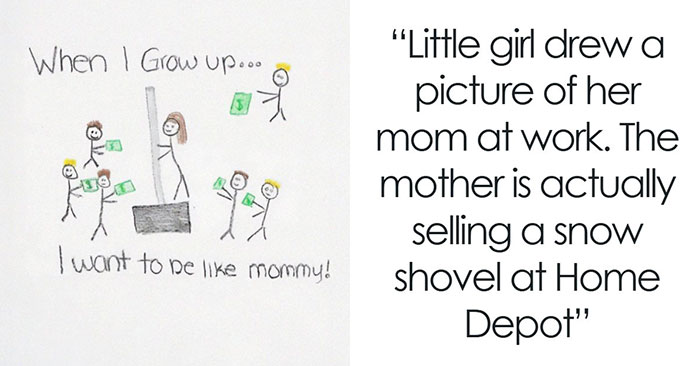



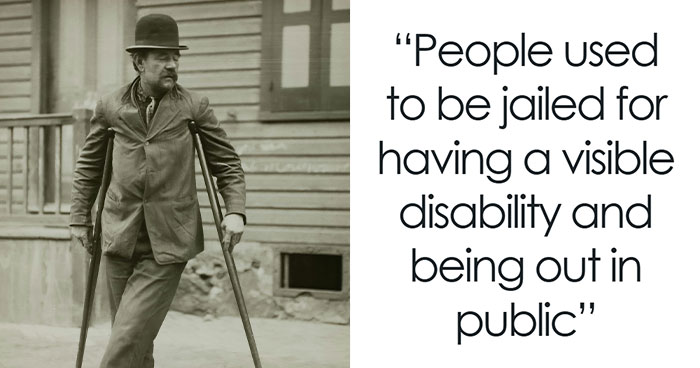
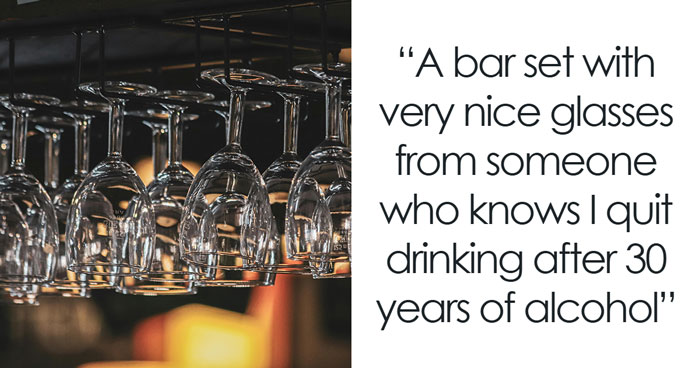

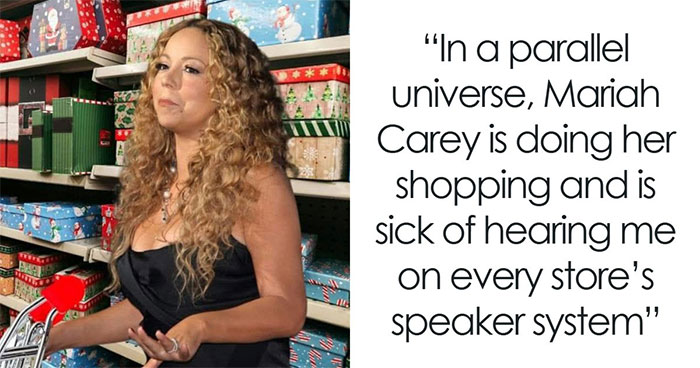
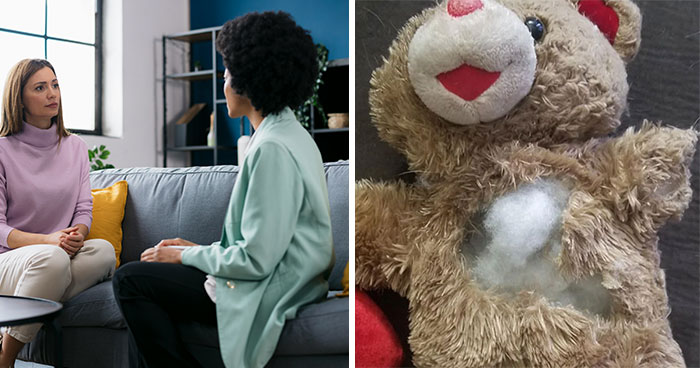









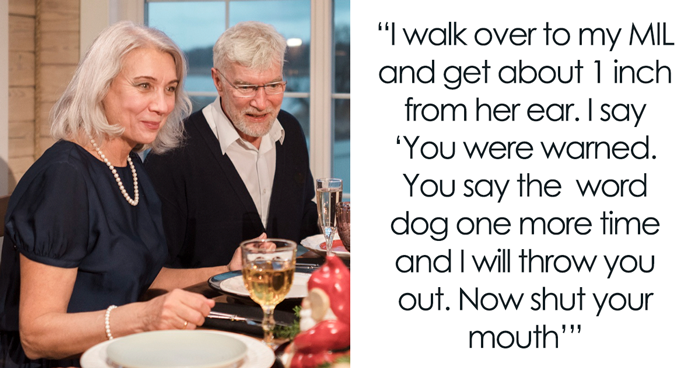




















33
99